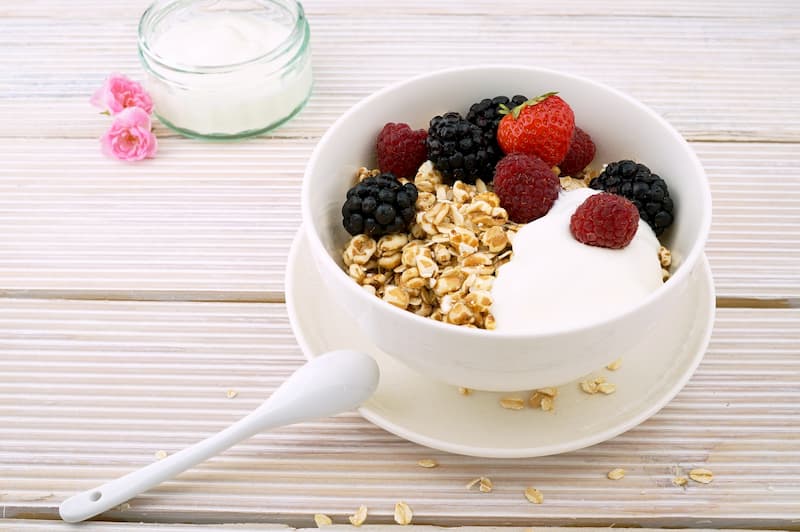
The Mind Body Connection
Approaches to mental health have changed over the years, and as a society we like to think we’ve made some progress. We have a wider awareness of the mental health issues people face, and hope to remove the stigma around the subject to encourage discussion of personal experiences. We’re beginning to realise that mental health isn’t a second priority to physical health, in fact recognising that in many ways mental health and physical health are fundamentally linked.
General lifestyle habits have always been associated with our mental health, such as how exercise is a powerful antidepressant [1] and how a lack of Vitamin D (primarily sourced from sunlight) can contribute to a low mood [2]. But what about the relation between the health of our gut and the health of our mind? At first, the suggestion might seem strange. However, once you look into the research, the connections between the belly and the brain become ever more convincing.
Gut Feeling
When written on a page, the concept that your stomach could affect mental health conditions such as depression and anxiety can seem like a stretch. But we all have an intuitive understanding of the relation between our mental state and our gut feeling. When we’re nervous, we can feel nauseous and even throw up. When we’re anxious, we can get that ‘knotted stomach’ sensation. We get ‘butterflies in the stomach’ when we get pumped with adrenaline – even for positive sensations, such as love. Throughout our lives, we experience this interplay between our thoughts and our gut feelings. Is it simply coincidental, or could there be reason for such a link?

Friendly Bacteria
Most people think of bacteria as germs, but the truth is we need certain kinds of bacteria to keep our bodies functioning properly. It’s particularly important to have a healthy community of bacteria in our gut. In recent studies, people with lower levels of healthy bacteria in their gut were associated with depression, while high counts of healthy bacteria were linked to a higher quality of life [3]. More research is being invested into “psychobiotics”, the treatment of mental health problems by ingesting live bacteria [4].
It’s not just a one way street, though: depression and stress could compromise our healthy bacteria, leading to a “feedback loop” between our gut microbiota and our mental health. Conditions such as Major Depressive Disorder could cause inflammation, changing the composition of our gut bacteria [5]. Likewise it’s well observed that stress is a major cause of IBS (Irritable Bowel Syndrome) [6]. People suffering from IBS can experience intense abdominal discomfort and often try to find a physical cause such as an allergy or an infection to explain their condition. Often the major contributor is stress or an anxiety disorder – that’s why psychotherapy options such as Cognitive Behavioural Therapy have been recommended to sufferers [7].
A study even went so far as to suggest there may be a relation between gut bacteria and mental health conditions such as schizophrenia (however, it was an animal based study) [8].
Probiotics and Prebiotics
So if you’re looking to improve your gut health with the hope of increasing your happiness … how do you do it? The key could be including both probiotics and prebiotics in your diet.
Probiotics are picking up in popularity, and for good reason. They are a great way to directly introduce good bacteria into your body – by eating them! Probiotics are foods and supplements that contain live bacteria which are good for your gut. Here are some probiotic foods you can try:
1. Fermented foods such as sauerkraut, kefir and kimchi
2. Traditionally produced cheese
3. Live yogurt
Prebiotics are foods which encourage the proliferation of good bacteria. Think of them as food for you and your friendly gut microbes! Here are just some prebiotics that you can easily include in your diet:
1. Onions and garlic
2. Leeks and asparagus
3. Bananas
4. Oats
Basically, make sure your diet is rich with prebiotic vegetables and fruit to set the stage for probiotics foods or supplements.

What to Avoid
We’ve just looked at foods that can boost your healthy gut microbes, and hopefully improve your mental wellbeing too. So what should be avoided?
Excessive alcohol consumption is never recommended for health reasons, and here’s another motivator to cut back the drinking: it can reduce the number of good bacteria in our intestines and is associated with inflammation [9]. We all know that alcohol is a depressive drug that can exacerbate mental health conditions and conflict with antidepressants, but this could be a more subtle reason heavy drinking can give us the blues.
Antibiotics are so called because, well – they are antibacterial! As such they’re used in medicine to kill harmful bacteria, but they can also be a double edged sword: antibiotics can kill healthy gut bacteria [10]. Thankfully over time the gut can recover, but it isn’t even clear if probiotics can help with this recovery. That’s why it’s important to only take antibiotics when they are prescribed for a necessary treatment.
Food for Thought
Exploring the connection between our gut and our mental health is a relatively new field of research, and as such we can’t jump to firm conclusions yet. That being said, there is a lot of promise to the science, and it can’t hurt to take a closer look at our diet and how it makes us feel.
If you’re concerned about mental health issues such as stress or burnout, make sure to check out Master Stress in 7 Easy Steps, Burnout: The Men’s Health Crisis We Aren’t Talking About, and The Mental Health Survival Guide to Post-Grad Life.
Sources
- Exercise for Depression | NHS: Mental Health & Wellbeing
- Vitamin D and Depression: Where is all the Sunshine? | PubMed Central
- The Neuroactive Potential of the Human Gut Microbiota in Quality of Life and Depression | PubMed Central
- Psychobiotics and the Manipulation of Bacteria–Gut–Brain Signals | PubMed Central
- The Microbiota-Inflammasome Hypothesis of Major Depression | PubMed Central
- Impact of Psychological Stress on Irritable Bowel Syndrome | PubMed Central
- Stress and the Sensitive Gut | Harvard Health Publishing
- The Gut Microbiome from Patients with Schizophrenia … and Schizophrenia-relevant Behaviors in Mice | PubMed Central
- The Gastrointestinal Microbiome: Alcohol Effects on the Composition of Intestinal Microbiota | PubMed Central
- Facing a New Challenge: the Adverse Effects of Antibiotics on Gut Microbiota and Host Immunity | PubMed Central
Further Reading
- Mental Health And Wellbeing | NHS
- Everything You Want To Know About IBS | healthline
- Cognitive Behaviour Therapy (CBT) | Mind
- What Are Probiotics? | WebMD







